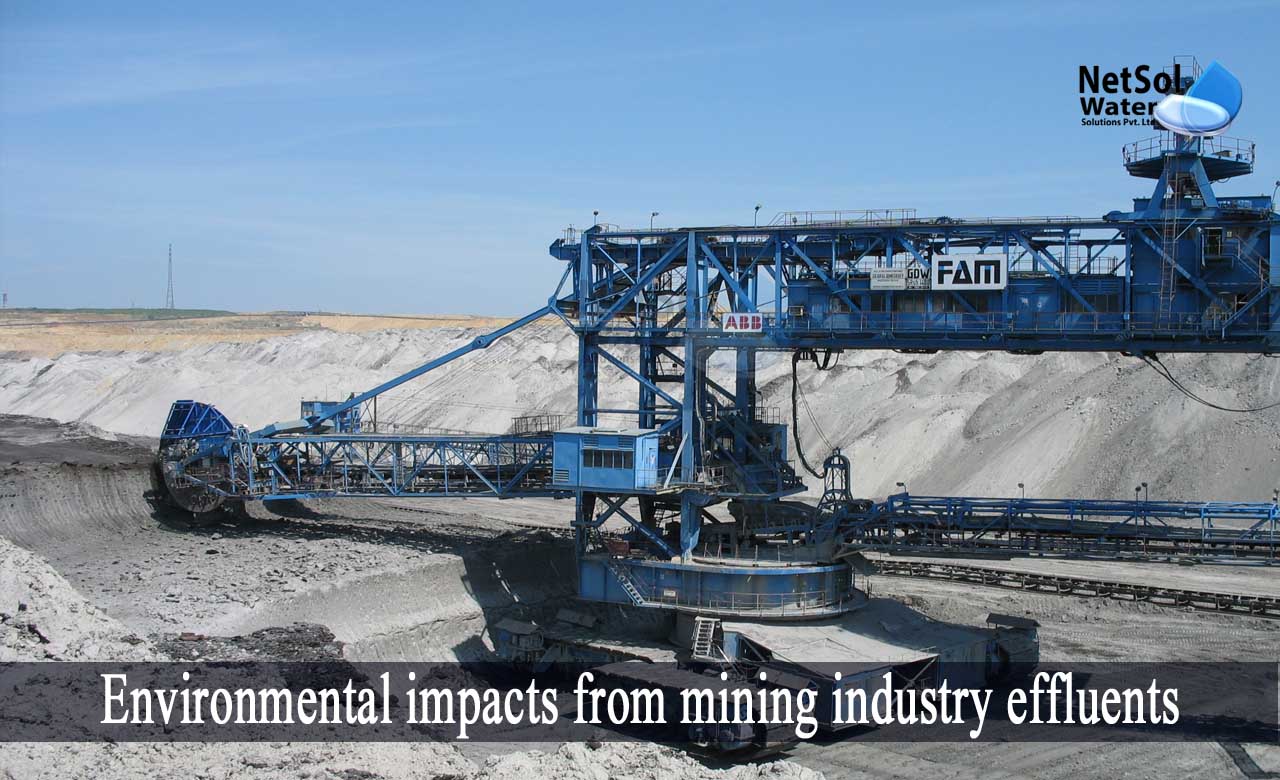What are the Environmental impacts from mining industry effluents?
Land variations may occur as a result of mine exploration, ore processing, operations, and management, as well as environmental difficulties, such as deforestation, soil pollution and variation, erosion, contamination of nearby streams and wetlands, and an increase in noise and air pollution. The consequences of unregulated mining and ore processing pollution, are clearand end-up resulting affecting the environment.
Mining and Ore Processing's Environmental Impacts
· Temperature isrising
During the summer, the temperature in India remains between 30°C and 42°C, which is uncomfortable, and a mine fire adds to the hard summer circumstances. Mine fires are common as a result of the discharge of significant volumes of coal. The on-going fire has raised the temperature in the atmosphere, endangering the entire ecosystem.
· Air Pollution
Mining activities, whether active or passive, contribute to the problem of air pollution. The most prevalent pollutants emitted by mining and active mine explosions are, particulate matter (PM), heavy metals, nitrogen dioxide (NO2), and sulfur dioxide (SO2). These air pollutants impact air quality near mining sites, impacting the ecosystem, plants, animals, and potentially human health.
Mining activities, exposed transportation, and the crushing of thousands of tons of ore, increases the amount of dust and other pollutants in the air significantly.Furthermore, mining tailings, which may contain finely crushed or poisonous materials, may become airborne and travel for long distances.
· Degradation of the Ecosystem and Wildlife
Because of mining, wildlife may be moved, and ecosystems may be injured or destroyed. Drinking contaminated tailings pond water can harm birds and other wildlife. Increased sedimentation or acidity can harm salmon, trout, and other aquatic creatures. Mining can also contribute to coastal erosion, by damaging crucial gravel beds for fish spawning and disrupting habitat, for other species that rely on clean, cold, oxygen-rich water.
Even in small amounts, heavy metal exposure can impede fish development. Fish feed on macro-invertebrates that live in stream silt and devour algae, which contains more metal than surface water.
· Contamination in Water
Pollutants generated during mining affects freshwater sources, resulting in water pollution, which has a negative impact on humans, plants, and animals.
Acid mine drainage has the potential to be 20-300 times more acidic than acid rain, causing skin irritation as well as the death of fish and other aquatic creatures. Acid mine drainage also leaches harmful elements, such as arsenic, lead, chromium, and cadmium via ore and rubbish rock, causing severe water contamination.
· Lead poisoning
Lead can also be found in ore with other commonly mined metals, such as copper, silver, zinc, and iron. As a result, there are several mining operations across the world that may emit lead into the environment.
Lead toxins in mine waste and tailings from ore processing are frequently not adequately stored or disposed of, and they can leach into the soil and nearby water systems, threatening water supplies and eventually agriculture.
Lead poisoning is characterized by low IQ, neurological damage, anaemia, pain, and discomfort in bones and muscles, physical growth deficits, nerve illnesses, memory loss, retardation, renal disorders, headaches, and exhaustion.Prolonged lead exposure can result in major health complications, such as seizures, coma, stupor, and death.
Conclusion
Pollutants produced during the mining process have serious repercussions. Mining processes such as drilling and blasting, as well as subsequent loading and unloading, shipping, mine handling plants, and even ore processing such as crushing of ore, all-cause environmental harm throughout coal mine locations. Mine waste, heavy metals, and acidic water are regularly found in rivers and streams.
These pollutants from the mining and ore processing industry are the main reasons, for the change in temperatures, global warming and affecting the ecosystem. Therefore, it is necessary to treat these pollutants in the most sustainable way.
Finding out sustainable ways to save Environment
Netsol Water offers various solutions for saving water, air, and our environment. Our water and wastewater treatment products include STPs, ETPs, which undergo various advanced processes, including MBBR, MBR, aeration, sedimentation, pH control, AOPs, lagoons, and many more, at affordable prices.
Netsol Water is Greater Noida-based leading water & wastewater treatment plant manufacturer. We are industry's most demanding company based on client review and work quality. We are known as best commercial RO plant manufacturers, industrial RO plant manufacturer, sewage treatment plant manufacturer, Water Softener Plant Manufacturers and effluent treatment plant manufacturers. Apart from this 24x7 customer support is our USP. Call on +91-9650608473, or write us at enquiry@netsolwater.com for any support, inquiry or product-purchase related query.



